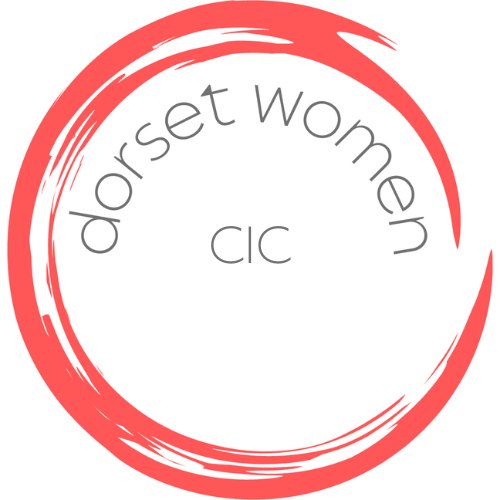
Dorset Women
Where equality reigns
Dorset Women’s Charter
Dorset Women's Charter
The Dorset Women’s Charter describes the kind of Dorset society in which Women and Girls should be able to expect to live – one that is free from sex or gender-based inequality, discrimination or bias.
The Charter sets out 10 standards of public life that Women and Girls in Dorset should be able to expect their representatives, decision makers, employers, policy makers and leaders, to advocate for and uphold on their behalf.
These standards are based on evidence and focus on actions that are required to achieve them.
Women and girls can only truly thrive within society, and reach their full potential, with gender balance across every aspect of humanity and daily life, achieved through a collaboration with men and boys.
3 Charter Aims
The overarching aims of this charter are ambitious and far reaching.
- To rid society of sex and gender-related discrimination and bias that create a negative and unequal experience for some people.
- Using data and evidence, to hold decision makers, leaders, and influencers to account so that they use their powers to maintain the 10 standards.
- To create a shift in attitudes toward sex, gender, gender identity and expression from negative to positive.
5 Charter Purposes
The purpose of this charter is to create a framework for change.
- To rid society of sex and gender-related discrimination and bias that create a negative and unequal experience for some people.
- Using data and evidence, to hold decision makers, leaders, and influencers to account so that they use their powers to maintain the 10 standards.
- To create a shift in attitudes toward sex, gender, gender identity and expression from negative to positive.
- To describe a vision for the future to inspire future generations of young women, girls and gender fluid and non-binary people.
5 Charter Principles
The Dorset Women's Charter is underpinned by a set of clear principles that frame our work.
Evidence
This charter is based on a combination of evidence, individual women’s experiences and stories.
Collaboration and Solutions
This Charter aims to set out collaborative solutions to a societal problem that has been established for centuries.
Women, Men and the Binary Gender Construct
This charter uses the word women to include all people who identify with being a woman, womanhood, the female and feminine characteristics. It recognises, at the same time, the chromosomal differences of sex that people are born with that contribute to specific health, cultural or religious differences between individuals that warrant specific attention. This Charter recognises that, for women to thrive and experience equality amongst themselves, and alongside men, that men must be part of the solution. It, therefore, identifies within its standards, where relevant, new constructs and concepts that are gender specific, concerning a spectrum of gender identity AND the binary sex of both women and men.
Equality and Equity
This Charter talks about equality and equity. It recognises equity as an important concept that is different to, but an enabler of, equality.
Unification not Replication or Re-Invention
This Charter recognises that there is already much work being undertaken internationally, nationally and locally to address the inequality experienced by women. It is the intention that, where policy, strategy, convention or guidance already exists, charter actions will orientate towards the recognition of, and collaboration with these and their intended goals
6 Charter Values
The charter values describe how we approach our work
Inclusion
Respect
Determination
Equity
Aspiration
Leadership
10 Charter Standards

1. Inclusion and Identity
Women in Dorset, whoever they are, regardless of their circumstances, backgrounds, heritage or postcode, physical, mental, religious, financial or work situations, should be able to expect to have equity of opportunity with other women and their male counterparts.
Women from minority backgrounds, and women with specific religious beliefs, mental, learning or physical disability needs or complex circumstances, whatever they are, should be able to expect to be involved and to be able to fully participate in society to the same extent as other women and as well as their male counterparts.
Women in Dorset should be able to expect to be able to express their identity in ways they choose free from judgement, prejudice, discrimination or oppression. They should be able to expect to see role models – people in positions of influence, leadership, media and decision-making, setting high standards for diversity, inclusion and healthy ‘normalities’ of bodies, sexuality and gender expression, creativity, culture and heritage, fashion and beauty, leisure and entertainment.
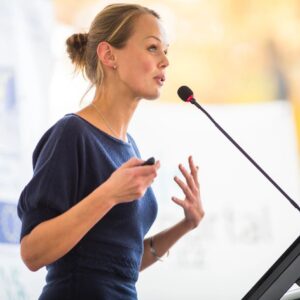
2. Society, Leadership and Politics
Women and Girls in Dorset should be able to expect to live in communities where the media, political and community leaders and decision makers represent them fully, act as, and promote, inspirational role-models, and enable a society and cultural norms that allow them to thrive in leisure, education, work and caring roles and allow them free expression, free movement and appropriate and healthy places to live, create, and socialise.
Women in Dorset should be able to expect a fair system of politics that is fully representative, work and family-friendly and enables them to participate fully in an equal and respectful political environment free from aggression, abuse, oppression, sexualisation and discrimination.
Women in Dorset should be able to expect that, when they are in times or circumstances of need – particularly times of economic hardship, chaotic households, children in care, crime, violence, disability, ill-health or homelessness, and have additional or support needs, they can receive timely and person-centred support and assistance from well-funded services tailored to meet their specific needs. They should be able to expect these services to understand the importance of and the significance to society of, the breakdown of roles where women are mothers, caregivers, income generators and home makers in wider society and prioritise support to these women accordingly.
Women in Dorset should be able to expect that older women are respected and celebrated for their experience and wisdom and live in a society that enables and empowers them to continue to contribute and participate with dignity for as long as they choose; particularly those women who live in a care facility or receive support or care in their own home.

3. Health (including Mental Health), Menstruation and Menopause
Women and Girls in Dorset should be able to expect timely mental and physical healthcare health education and health screening, designed and delivered to meet their needs based on research and evidence that is sex-specific and gender appropriate, which allows women to make decisions about their bodies and minds, fully informed and without prejudice.
Women and Girls in Dorset should be able to expect to live in a society where menstruation is no longer a taboo, is a subject of normal conversation, and contemporary research, is well understood by men and women, boys and girls alike, where menstruation products are easily and freely available to those who need them to be, and where public toilets are accessible and clean.
Women in Dorset who experience menopause should be able to expect to receive consistent and high-quality information which enable them to make appropriate choices about managing symptoms. They should be able to expect employers, to be knowledgeable, flexible, supportive and empowering. They should be able to expect public venues, leisure facilities, the media, retail outlets to recognise their needs and accommodate them without prejudice.
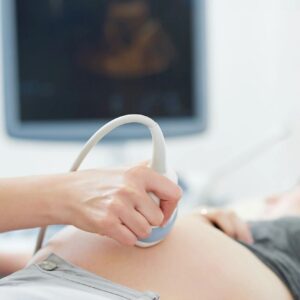
4. Reproductive Health, Pregnancy and Baby Loss.
Women in Dorset should be able to expect education about, and healthcare related to, their reproductive health based on research and evidence. They should be able to make decisions about their bodies in relation to reproduction without prejudice or interference. In particular, women in Dorset should be able to make independent decisions about pregnancy and assisted pregnancy and be able to choose and experience pregnancy and all aspects of life relating to it, without discrimination or prejudice. This includes all aspects of information about, healthcare related to, and timely access to contraception, abortion and intervention when experiencing complications.
Women in Dorset should be able to expect an appropriate level information and support during pregnancy from appropriate healthcare providers or other complementary services of their choice, in particular in relation to prevention of baby loss and complications, preparing for birth, baby care and parenthood. Where women experience baby loss and/or complications of pregnancy they should be able to expect timely and specific support tailored to their needs and circumstances for as long as that support is required.
Women in Dorset should be able to expect post-natal support to enable them to return to the life they choose after pregnancy without discrimination or disproportionate barriers to choices relating to employment.
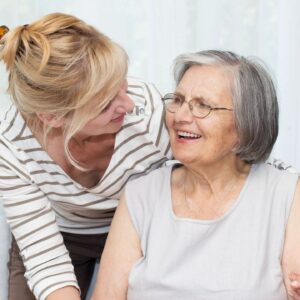
5. Raising Children, Childcare and Caring Roles
Women in Dorset, in particular those women not in a relationship, should be able to expect to be able to choose whether to raise or not raise children without experiencing barriers or disproportionate burdens or inequality of responsibility at home, at work or in wider communities. They should be able to expect easy availability of affordable, flexible, consistent childcare that enables them to make choices about how they live, work, learn and take on caring roles.
Women in Dorset should be able to expect to be able to carry out all caring tasks without the need to compromise their opportunities, to make disproportionate financial sacrifices for themselves, their families or those of the persons for whom they are caring.

6. Safety and Justice
Women in Dorset should be able to expect to live their lives in all settings including their homes, education, work, leisure, nightlife and outdoor settings safe and free from violence, harassment, intimidation or coercion from, and by men. They should be able to expect these issues to be discussed using language that focusses on the causes and problems, and on prosecuting perpetrators, moving away from language that focusses on them as victims.
Women in Dorset should be able to expect that, if experiencing the criminal justice system themselves, they experience a fair and proportionate process without bias or prejudice relating to their gender.
Women in Dorset who do experience violence, harassment, intimidation, coercion and sexual trauma and/or domestic violence, should be able to expect to be believed, listened to, safeguarded and supported to bring perpetrators to justice in settings that are appropriate to their needs.
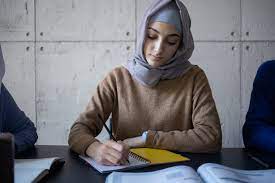
7. Education
Women & Girls in Dorset should be able to expect equal opportunities and exposure to education that enables them to thrive in the fullest possible range of careers and life choices not limited by their sex or gender identity. They should be able to expect local research programmes and academic institutions to be addressing the gender data gap, algorithm bias and disproportionate representation on their behalf – particularly in the areas of Science, Technology, Engineering and Mathematics (STEM).
Women & Girls in Dorset should be able to expect to live in a society where men and boys are educated about equality, healthy relationships and consent and fully understand the strengths, traits, skills and attributes of women and girls and the role and context of these characteristics within a new society of equality.

8. Economics and Employment
Women in Dorset should be able to expect their experiences as employees, consumers, citizens and taxpayers to be fair, non-discriminatory or biased and empower them to function fully in society. They should be able to expect to work, live and consume in environments where there is a culture of equity that enables equality, with financial freedom and opportunity for development and growth into any role they choose, including those of the most senior leadership.
Women in Dorset should be able to expect to live in a society where there are plentiful work opportunities whether in employed roles, self-employed, entrepreneurial or volunteering and that they can secure and thrive in these roles without discrimination or limitation based on their gender including roles in previously male-dominated industries (such as engineering, farming, transport) and that, when they do, they receive sex or gender-appropriate adjustments such as appropriately designed protection equipment or uniforms.
Women in business or employment should be able to expect equal pay to their male counterparts, equal access to opportunities for training and growth, and to perform their roles without fear of discrimination based on unhelpful stereotypes of women in the workplace. They should be able to expect employers to be transparent about gender equality particularly on issues of pay and women in senior and board positions.

9. Arts, Culture and Nature
Women in Dorset should be able to expect to be able to access nature, arts and cultural experiences without barriers or difficulties based on their sex and gender expression. This includes accessible, safe transport links to cultural centres, arts venues and outdoor, green or rural settings within hours that suit work schedules, caring responsibilities and with suitable facilities with toilets, feeding and changing areas.
Women in Dorset should be able to expect to see all women and non-binary people equally represented within the arts, in cultural experiences, in literature and in all types of entertainment. They should be able to expect to find representation of themselves in the surrounding area including heritage, nature and outdoor spaces. Where women themselves are artists, they should be able to expect to practice, perform, create and express themselves freely in ways that suit their whole lives and families.

10. Physical Activity, Sport and Leisure
Women and girls in Dorset should be able to expect easy access and safe participation in physical activity, sports and leisure activities in ways equal to their male counterparts and not limited by their sex or gender expression. They should be able to expect this to be readily available to them in all education establishments, at work and in their communities.
Women & Girls should expect gender-appropriate spaces exist in schools and communities, which are designed for the way they use space for all physical activities and sport for fun and leisure as well as organised or competitive activities.
Women & Girls should be able to expect to have opportunities to be active that represent their individual needs and preferences, recognising that there are a variety of ways to be active outside of traditional sport and exercise. They should be able to expect providers to challenge outdated stereotypes and use appropriate language and imagery that reflects them.
Charter Governance
Constitution
This Dorset Women’s Charter has been developed, in partnership with the women of Dorset, by Dorset Women – it is overseen by Dorset Women CIC with a board of 8 Directors. Dorset Women CIC Board of Directors meet monthly; queries can be emailed to DorsetWomen@gmail.com .
Membership
The Dorset Women’s Charter itself will act as a unifying document to a Membership structure where individuals, organisations and businesses pledge to uphold the 10 charter standards within their network, community, or company.
Ambassadors
Dorset Women CIC will appoint Ambassadors to the Dorset Women’s Charter who will promote the charter, represent the charter and encourage membership and adoption of the 10 standards across their networks and/or communities. These Ambassadors will be allies to the charter and can be any person from any background.